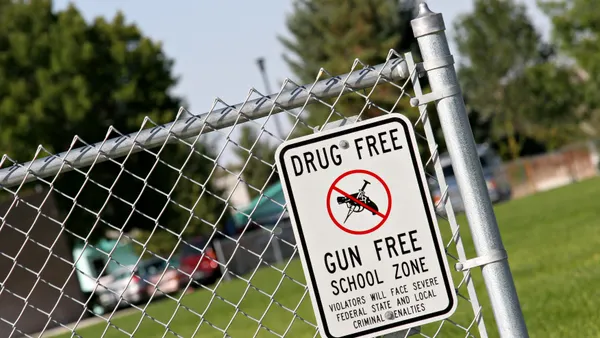Dive Brief:
- Schools and districts should not water down or eliminate social-emotional learning in reaction to pushback and criticism, panelists said during a virtual discussion Tuesday hosted by Education Development Center, a nonprofit that focuses on health and education issues.
- Instead, educators should address false claims or misinformation, highlight the benefits of SEL and provide opportunities for community members to engage in a school's SEL efforts. "We need to communicate with each other and find common ground around this," said panelist Sheldon Berman, lead superintendent for social-emotional learning at AASA, The School Superintendents Association.
- Criticism of SEL, which some opponents say is used as a shield to teach critical race theory in schools or for schools to control the social and emotional health of students, has increased over the last few years. This should concern school systems, the panelists said, because SEL has been shown to contribute to positive student outcomes.
Dive Insight:
The panelists said SEL opposition is coming from a small subset of parents and community members in reaction to pandemic-related frustrations and based on hidden political agendas. Still, critical voices are spread out across the country.
Panelist Erica Buchanan-Rivera, director of equity and inclusion for the Metropolitan School District of Washington Township in Indianapolis, Indiana, said SEL has been criticized as child abuse and that ideological groups say it is used as a vehicle for conversations about race and gender identity.
The debates around SEL and CRT in her area are occurring in predominantly White communities, she said.
"This tells me that we have White people within our communities who have yet to reckon with the history of race and racism within this country and a lot of what is happening as far as these critiques," Buchanan-Rivera said. "So there's a lot of learning and unlearning that has to happen.”
A bill before the Oklahoma Legislature would prohibit schools from using federal, state or private funds to teach SEL. If a school is found in violation, it would be assessed a financial penalty of 5% of its state aid allocation.
In Idaho, the state education department told IDEDNEWS.org last fall it was distancing itself from the term "social-emotional learning" because of controversial overtones, but would still support the concept of SEL education.
Some of the panelists likewise suggested schools move away from SEL terminology while still embracing SEL curriculum and practices. Lara Bergthold, a principal partner at RALLY, a Los Angeles communications firm, said the firm's testing showed the word "equity" has become misunderstood, even by people who support efforts toward equity and inclusion in schools.
"Coming back to understanding and centering the conversation in places where we are in agreement is the way to move this forward, and good language can do that," Bergthold said.
Additional recommendations made by the panelists included:
- Dispel misconceptions. To respond to concerns about CRT, the Metropolitan School District of Washington Township issued a statement last year outlining what CRT is and is not.
- Explain approaches and benefits of SEL. In its statement about CRT, the Metropolitan School District of Washington Township instead explained the district's approach to culturally responsive instruction and practices.
Panelist Jim Vetter, associate director of health and technology at Education Development Center, recommends bringing SEL supporters together so they can "come together as champions, to be able to speak up and talk about the good work that they're doing."
"This is not the time to lay back, not the time to go underground with the SEL work," he added.
Bergthold said students and parents can also be powerful messengers of the benefits of SEL, as can military personnel and business leaders who can speak about the SEL skills needed in the workforce.
- Find agreement in disagreement. The panelists said they don't recommend engaging with people who are threatening school staff and board members or who are uninterested in learning more about a district's SEL approaches. For community members who may disagree but are willing to discuss the differences, educators should be open to having conversations about areas of common ground.
Bergthold recommends having conversations with those who seek better understanding. "There are plenty of parents who are confused, struggling, trying to understand what SEL really is," she said.













